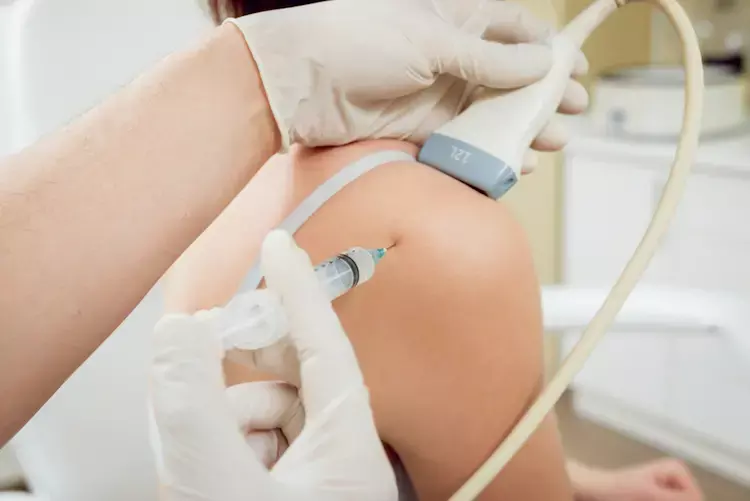- Home
- Medical news & Guidelines
- Anesthesiology
- Cardiology and CTVS
- Critical Care
- Dentistry
- Dermatology
- Diabetes and Endocrinology
- ENT
- Gastroenterology
- Medicine
- Nephrology
- Neurology
- Obstretics-Gynaecology
- Oncology
- Ophthalmology
- Orthopaedics
- Pediatrics-Neonatology
- Psychiatry
- Pulmonology
- Radiology
- Surgery
- Urology
- Laboratory Medicine
- Diet
- Nursing
- Paramedical
- Physiotherapy
- Health news
- Fact Check
- Bone Health Fact Check
- Brain Health Fact Check
- Cancer Related Fact Check
- Child Care Fact Check
- Dental and oral health fact check
- Diabetes and metabolic health fact check
- Diet and Nutrition Fact Check
- Eye and ENT Care Fact Check
- Fitness fact check
- Gut health fact check
- Heart health fact check
- Kidney health fact check
- Medical education fact check
- Men's health fact check
- Respiratory fact check
- Skin and hair care fact check
- Vaccine and Immunization fact check
- Women's health fact check
- AYUSH
- State News
- Andaman and Nicobar Islands
- Andhra Pradesh
- Arunachal Pradesh
- Assam
- Bihar
- Chandigarh
- Chattisgarh
- Dadra and Nagar Haveli
- Daman and Diu
- Delhi
- Goa
- Gujarat
- Haryana
- Himachal Pradesh
- Jammu & Kashmir
- Jharkhand
- Karnataka
- Kerala
- Ladakh
- Lakshadweep
- Madhya Pradesh
- Maharashtra
- Manipur
- Meghalaya
- Mizoram
- Nagaland
- Odisha
- Puducherry
- Punjab
- Rajasthan
- Sikkim
- Tamil Nadu
- Telangana
- Tripura
- Uttar Pradesh
- Uttrakhand
- West Bengal
- Medical Education
- Industry
Capsule preserving Ultrasound guided hydrodilatation bests capsule rupture technique for shoulder adhesive capsulitis

Adhesive capsulitis (AC) is a common disorder presenting with shoulder pain which gradually progresses to global limitation of both active and passive range of motion (ROM). The rate of complete symptoms’ resolution following conservative treatment has been reported to be as low as 50%. Among all treatment strategies, GHJ hydrodilatation has been shown to be effective in reducing pain and restoring ROM with satisfying short- and long-term outcome.
Madalena Pimenta et al conducted a study to compare the clinical efficacy of capsule-rupturing versus capsule-preserving ultrasound-guided hydrodilatation in patients with shoulder adhesive capsulitis (AC).
Within a 2-year period, 149 consecutive patients with AC were prospectively enrolled and allocated into (i) group-CR, including 39 patients receiving hydrodilatation of the glenohumeral joint (GHJ) with capsular rupture and (ii) group-CP, including 110 patients treated with GHJ hydrodilatation with capsular preservation. Demographics, affected shoulder, and AC grade were recorded. Disabilities of the Arm, Shoulder and Hand (DASH) questionnaire and visual analog scale (VAS) were used for clinical assessment at baseline/1/3/6 months. Comparisons were performed with Mann-Whitney U test and Kolmogorov-Smirnov test. Linear regression was used to identify predictors of outcome. P value < 0.05 defined significance.
Key findings of the study were:
• DASH and VAS scores in both groups improved significantly compared to baseline (P < 0.001) and were significantly lower in the CP compared to CR group at all time-points following intervention (P < 0.001).
• Capsule rupture was a significant predictor of DASH score at all time-points (P < 0.001).
• DASH scores correlated to initial DASH score at all time-points (P < 0.001).
• DASH/VAS scores at 1 month were correlated to the AC grade (P = 0.025/0.02).
The authors concluded that – “GHJ hydrodilatation results in pain elimination and functional improvement till the mid-term in patients with AC, with improved outcome when adopting the capsule-preserving compared to the capsule-rupturing technique. Higher initial DASH score is predictive of impaired functionality in the mid-term.”
Further reading:
Ultrasound guided hydrodilatation for adhesive capsulitis: capsule preserving versus capsule rupturing technique
Madalena Pimenta, Evangelia E. Vassalou et al
Skeletal Radiology (2024) 53:253–261
https://doi.org/10.1007/s00256-023-04392-7
MBBS, Dip. Ortho, DNB ortho, MNAMS
Dr Supreeth D R (MBBS, Dip. Ortho, DNB ortho, MNAMS) is a practicing orthopedician with interest in medical research and publishing articles. He completed MBBS from mysore medical college, dip ortho from Trivandrum medical college and sec. DNB from Manipal Hospital, Bengaluru. He has expirence of 7years in the field of orthopedics. He has presented scientific papers & posters in various state, national and international conferences. His interest in writing articles lead the way to join medical dialogues. He can be contacted at editorial@medicaldialogues.in.


